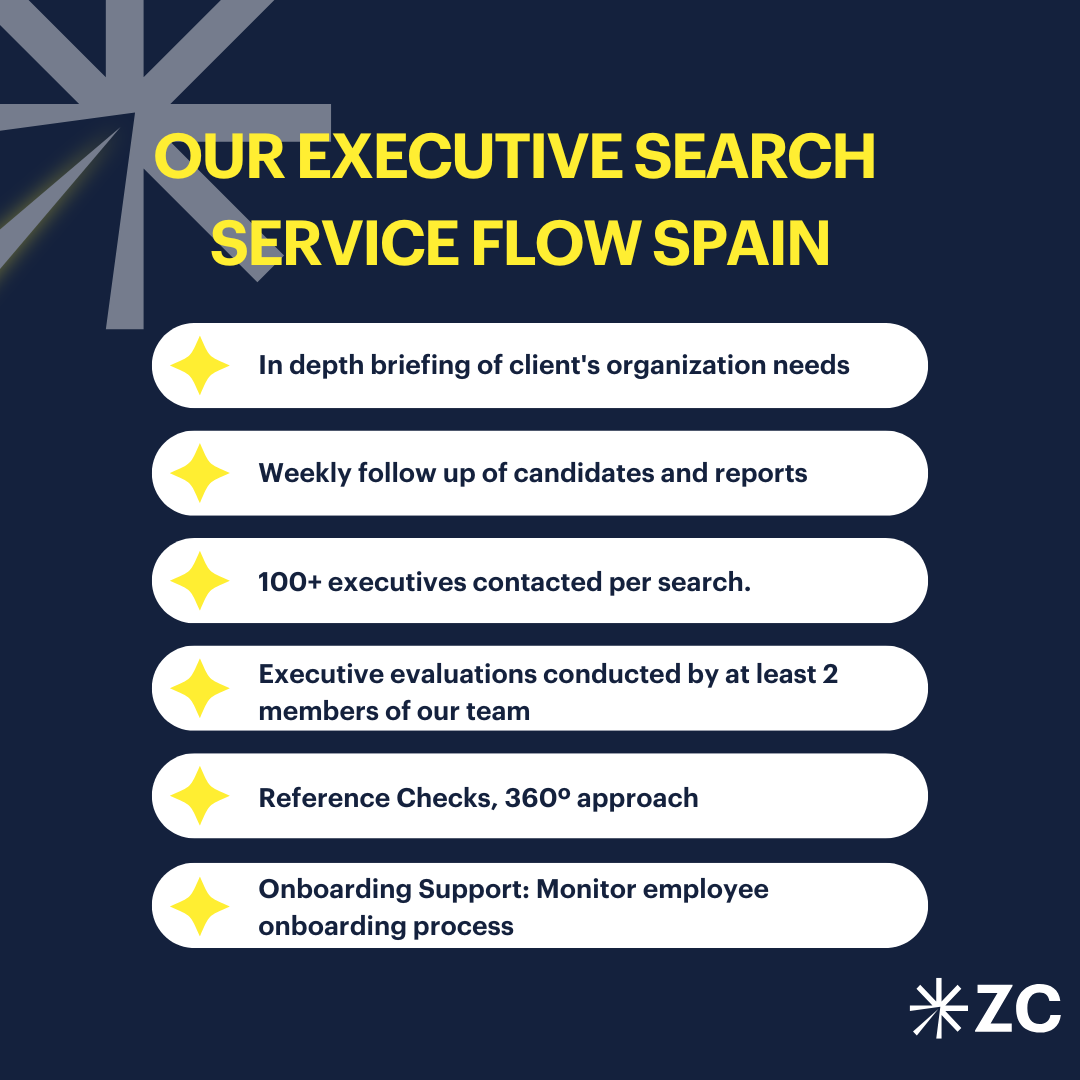In 2025, diversity and inclusion are no longer optional — they’re expected. Regulatory pressure, investor scrutiny, and shifting societal norms are reshaping the way companies in Spain approach leadership. At the center of this transformation is the growing expectation for executive search in Spain to deliver not just qualified leaders, but representative and inclusive ones.
This article explores where Spain stands in terms of female leadership, the legal frameworks influencing change, the challenges of turning targets into outcomes, and how search firms can actively support lasting inclusion.
Where Spain Stands on Inclusive Leadership
There has been visible progress, but significant gaps remain:
- As of 2024, only 19.8% of executive committee members in IBEX 35 companies were women.
- Board representation is higher — around 34% — but progress at C-suite level is slower, especially in industrial, tech, and finance sectors.
- A McKinsey study found that companies with the most gender-diverse executive teams were 25% more likely to outperform financially — evidence that inclusion isn’t just ethical, it’s strategic.
While some firms have embraced the challenge, many are still searching for meaningful, measurable ways to build diverse leadership teams in Spain.
Policy and Regulation: What’s Driving the Shift
Spain has introduced multiple frameworks pushing companies toward more balanced leadership:
- The CNMV Code of Good Governance recommends at least 40% female representation on boards.
- The 2023 Ley de Paridad (Parity Law) mandates gender balance in political and corporate institutions.
- The Equality Law (Ley Orgánica 3/2007) requires larger companies to implement equality plans and monitor gender metrics.
- The new ESG-linked disclosures expected from 2025 will force firms to show progress not only in climate risk — but also in leadership diversity.
These frameworks don’t just encourage change — they demand accountability, especially in the executive hiring process.
Why Inclusive Executive Hiring Remains a Challenge
Despite strong policy signals, many companies still struggle with inclusive recruitment:
- Narrow pipelines: In sectors like energy, logistics, and construction, fewer women reach VP level — limiting succession candidates.
- Informal decision-making: Many top roles are filled through closed networks that unintentionally exclude diverse profiles.
- DEI fatigue: After initial enthusiasm, some companies struggle to turn policy into long-term culture.
- Fear of tokenism: Boards may hesitate to set hard diversity goals to avoid perceived optics issues — slowing progress further.
The Role of Executive Search in Building Real Change
Progressive executive search firms in Spain are shifting their focus — from simply meeting a brief to actively helping clients transform their leadership model.
Here’s how inclusive search is done right:
- Expanding the talent map: Going beyond known networks to surface high-potential candidates from underrepresented paths.
- Bias-aware processes: Using structured interviews, scorecards, and psychometrics to reduce unconscious bias.
- Advisory role: Helping clients set clear inclusion goals, build internal buy-in, and align hiring with strategy.
- Tracking outcomes: Monitoring not just shortlists, but placements and retention across diversity dimensions.
Case Insight: Financial Services
In a recent search for a COO in the financial services sector, our client required a shortlist with at least 50% gender balance. While the industry skews male at senior levels, we built a finalist pool that exceeded expectations — including two women with strong fintech and regulatory backgrounds. One was hired. Six months later, the client reported increased engagement scores across their leadership team.
This shows how inclusion and performance go hand-in-hand — when recruitment is handled intentionally.
- Why This Matters
Inclusive executive hiring isn’t about quotas — it’s about resilience, decision-making, and business credibility. Companies that invest in representative leadership benefit from:
- Stronger innovation and strategic thinking
- Increased trust with clients, partners, and talent
- Improved ESG performance and regulatory alignment

FAQ: Inclusive Executive Search in Spain
Q: How far behind is Spain in executive gender diversity?
Spain is ahead of many EU countries in board parity but lags at the executive level, with under 20% female representation in C-suites.
Q: What sectors are progressing faster?
Consumer goods, pharma, and retail are moving faster on diversity goals; finance, industrial, and tech sectors are progressing more slowly.
Q: Is there pushback against inclusion targets?
Yes — some boards worry about tokenism or losing perceived meritocracy. That’s why objective, structured search processes are critical.
Q: What role do search firms really play?
Beyond candidate lists, firms help define success profiles, challenge bias, and build leadership pipelines that are both diverse and high-performing.
Ready to Build a More Inclusive Leadership Team?
Let’s go beyond the shortlist.
👉 Talk to our team about how we help organizations in Spain identify leaders who drive change — and represent it.










